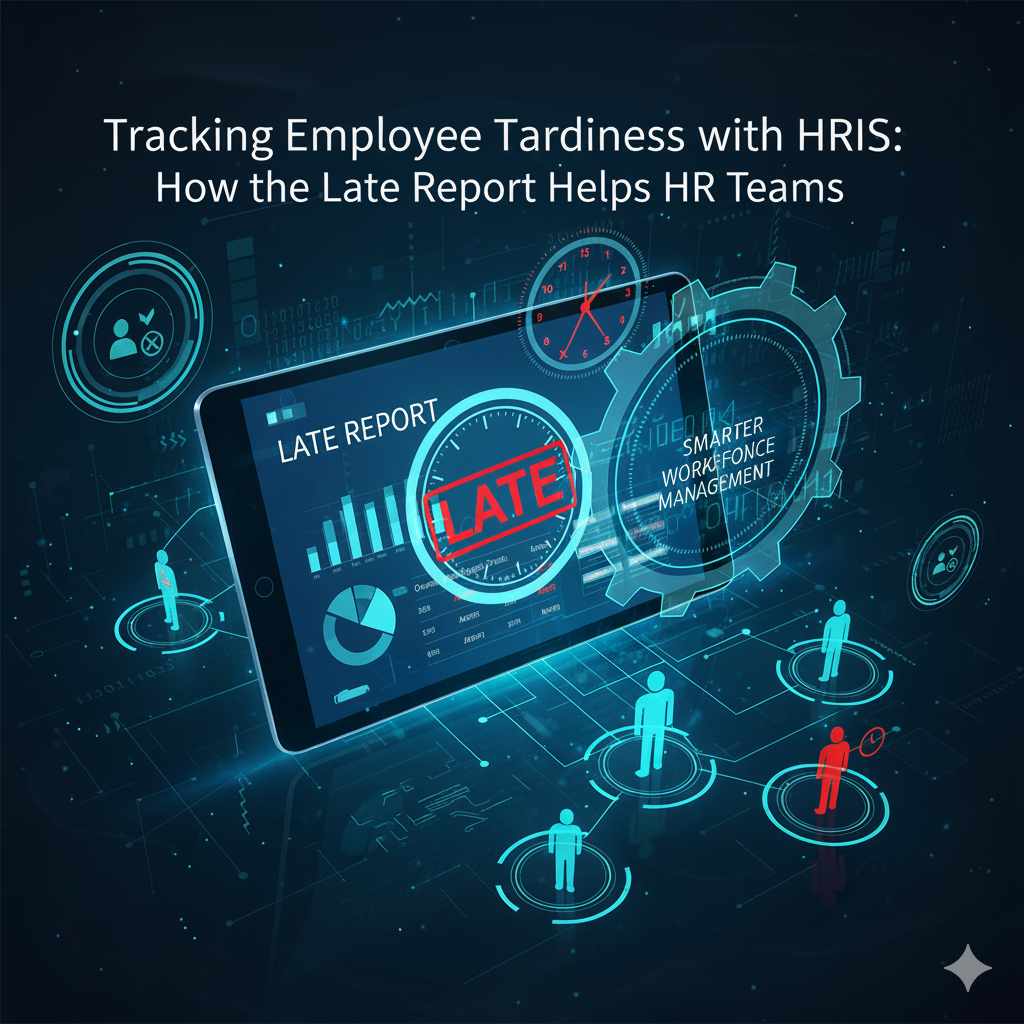Address
Kaypian, San Jose Del Monte City, Bulacan Philippines
Work Hours
Monday to Friday: 8AM - 6PM
Weekend: 10AM - 5PM
Address
Kaypian, San Jose Del Monte City, Bulacan Philippines
Work Hours
Monday to Friday: 8AM - 6PM
Weekend: 10AM - 5PM


Integrated HR. Accurate Payroll.


Integrated HR. Accurate Payroll.

Employee tardiness might seem like a small issue, but it can add up to lost productivity, lower morale, and payroll inconsistencies. For HR teams and business owners, monitoring late arrivals is essential to maintain fairness and keep operations running smoothly.
The Late Report in a Human Resource Information System (HRIS) is designed to make this process easier, faster, and more accurate. In this article, we’ll discuss what a late report is, why it’s important, and how HR teams can use it to reduce employee tardiness and improve workplace efficiency.
A Late Report is a record of all employees who clocked in after their scheduled start time. It shows key details like employee name, date, scheduled shift, actual time-in, and the number of minutes late.
In a modern HRIS, this report is automatically generated using data from biometric systems, online attendance trackers, or timesheets — eliminating the need for manual monitoring.
Late arrivals can affect daily pay rates, overtime calculations, and allowances. Automating late tracking ensures that salary deductions or adjustments are done fairly and accurately.
When employees know that their tardiness is being tracked accurately, they are more likely to arrive on time.
Reducing late arrivals means work starts on time, meetings run smoothly, and output improves across teams.
The late report allows HR to identify patterns — whether certain shifts, days, or departments have higher rates of tardiness — so they can address the root cause.
For businesses and LGUs in the Philippines, proper attendance monitoring is key to compliance with labor laws and government reporting requirements.
When selecting an HRIS with late reporting capabilities, look for:
The Late Report in your HRIS is more than just a list of tardy employees — it’s a valuable tool for improving punctuality, ensuring payroll accuracy, and boosting productivity.
By automating tardiness tracking, HR teams can focus on addressing the root causes of lateness and creating a more efficient, disciplined, and engaged workforce.
If your business or LGU is still manually monitoring late arrivals, now is the perfect time to switch to an HRIS & Payroll System that includes real-time late reporting. You’ll save time, reduce errors, and promote a culture of accountability.